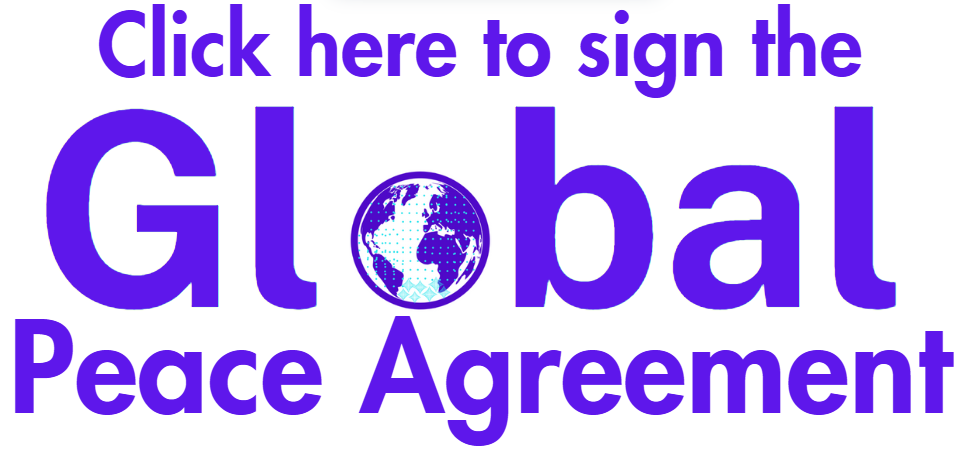Collaborative Diplomacy
A fascinating interplay between sovereignty and cooperation has emerged, leading to compelling instances of effective collaborative diplomacy. The delicate equilibrium between upholding national autonomy and engaging in cooperative endeavors to tackle global challenges has resulted in remarkable outcomes across diverse domains.

The Arctic Council, established in 1996, stands as a prime model of nations collectively addressing shared concerns while respecting individual sovereignty. The council has adeptly navigated environmental concerns and sustainable development by comprising eight Arctic states and indigenous organizations. Research from the Arctic Monitoring and Assessment Programme (AMAP) highlights the efficacy of collaborative initiatives within the council. For instance, the Arctic Climate Impact Assessment, driven by scientific cooperation, has provided critical insights into climate change's impact on the region. This scientific collaboration underscores the belief that collective knowledge and coordinated action are crucial in safeguarding national interests, exemplifying the potential of the sovereignty-cooperation nexus.
The European Union (EU), a monumental experiment in integration, epitomizes the transformative potential of the sovereignty-cooperation nexus. Historical analysis by economists Jeffrey Sachs and Andrew Warner underscores how the EU's commitment to cooperation has contributed to economic growth and political stability. Creating a single market, a common currency, and harmonized regulations within the EU have fostered an environment where nations willingly cede aspects of sovereignty for the greater good. Empirical research by Alberto Alesina and Enrico Spolaore highlights how supranational institutions facilitate cooperation by addressing externalities that could impede cross-border collaboration. The EU's success offers a profound lesson: judicious relinquishment of sovereignty can yield immense benefits through shared endeavors.
Global health challenges serve as a compelling testament to the necessity of international cooperation. Analysis of the World Health Organization's (WHO) role during pandemics reveals how shared information and resources enable nations to respond effectively. Empirical studies on HIV/AIDS cooperation, such as research by Sophie Harman, emphasize that pooling resources and expertise across countries has been pivotal in curbing the epidemic. The WHO's International Health Regulations demonstrate how nations can harmonize their approaches to global health security. The data-driven success of these initiatives underscores the power of collaborative diplomacy in safeguarding public health.
The realm of space exploration showcases a distinctive frontier for the sovereignty-cooperation nexus. Analysis of the International Space Station (ISS) underscores how countries like the United States, Russia, and European nations engage in joint research and technology sharing to operate the station. Research by Joan Johnson-Freese demonstrates that this collaborative approach lowers costs and facilitates knowledge exchange. The Outer Space Treaty, ratified by 110 countries, exemplifies the commitment to peaceful space exploration while respecting national sovereignty. This cooperative space venture exemplifies how nations can achieve scientific progress and technological advancement by transcending territorial boundaries.
Environmental challenges necessitate transnational solutions rooted in the sovereignty-cooperation nexus. Analysis of the Paris Agreement reveals how countries align their national climate goals within a global framework. Thiemo Fetzer's research underscores that collaborative climate action mitigates the "free-riding" predicament in which certain nations might capitalize on the efforts of others. Empirical evidence from the International Renewable Energy Agency (IRENA) studies demonstrates that integrating renewable energy technologies exemplifies how joint investments foster sustainable development.
The sovereignty-cooperation nexus is a compelling paradigm for international relations in a rapidly changing world. A rigorous analysis of successful instances underscores a consistent pattern: strategic collaboration yields tangible benefits that transcend the limitations of individual nation-states. Historical data, empirical research, and evidence-based insights collectively reinforce the notion that while sovereignty remains integral, cooperation enhances global outcomes.
This nuanced balance demands meticulous negotiation and adherence to shared values. Trust, transparent communication, and the pragmatic recognition of mutual interdependence underpin the effectiveness of collaborative diplomacy. As the dynamics of the world stage keep changing, the insights drawn from these occurrences point the way toward a more interconnected future founded on collaboration.
The nexus between sovereignty and collaboration represents a period of collective advancement in the vast tapestry of international relations. The concepts illustrated by these examples provide a road map for maximizing the power of unity as nations traverse difficult circumstances. The examples of successful collaboration remind us that, despite the complexity and unpredictability of global dynamics, we can work together to create a more enlightened, affluent, and peaceful world.
Forging a New Paradigm
A revolutionary paradigm that transcends the traditional bounds of sovereignty and ushers in an age of collaborative growth is developing in the complex web of international interactions. The idea of using sovereignty to spur global progress is gaining popularity as countries struggle with global problems that go beyond national boundaries. This paradigm shift signifies a break from the conventional view of sovereignty as an impenetrable barrier and embraces it as a driver for collaboration and improvement on a global scale.
This new paradigm's heart lies in the reconciliation of sovereignty and collaboration. Historically, sovereignty has been considered the cornerstone of nation-states, the defining factor that sets them apart in a complex world. Yet, in an era marked by climate change, pandemics, and technological interconnectivity, the sanctity of borders is challenged. The Covid-19 pandemic, for instance, laid bare the stark reality that global challenges demand global solutions. The swift and efficient dissemination of information, medical supplies, and vaccines required nations to set aside rigid notions of sovereignty in favor of collaborative action. This underscores the notion that while sovereignty remains intrinsic, it can be harnessed as a catalyst for meaningful collaboration.
The traditional sovereignty paradigm often perpetuated a zero-sum game, where nations viewed each other as rivals competing for finite resources and power. However, a shift is underway as humanity's challenges become more complex. Sovereignty has transitioned from being a hindrance to becoming a cornerstone upon which collaborative endeavors can be constructed.
For instance, the Paris Climate Agreement illustrates how countries use their sovereignty to set shared objectives and pool resources for environmental sustainability.
The alliance formed by the European Union, once a conglomerate of rival nations, showcases how shared interests can transcend historical animosities, creating a harmonious collaboration ecosystem. This shift signals that sovereignty, rather than a barrier, can be the catalyst that fuels collaborative progress.
The new paradigm necessitates departing fragmented decision-making towards integrated approaches that acknowledge shared responsibilities. Realizing that challenges like cybersecurity, terrorism, and global health require collective solutions has prompted a reevaluation of sovereignty's role. Establishing international organizations such as the United Nations, the World Health Organization, and INTERPOL reflects the acknowledgment that sovereignty is not an impediment but a conduit forging a safer and more stable world. Research from the Global Governance Project underscores that these organizations have become vehicles for nations to pool their sovereignty, creating global norms, standards, and responses. This integration signifies that leveraging sovereignty can amplify collaborative potential.
In an age characterized by digital interconnectedness, sovereignty takes on new dimensions. Cyberspace, the global digital realm, knows no geographical boundaries and transcends traditional definitions of territoriality. Nations grapple with the need to protect their digital landscapes while collaborating to combat cyber threats that emanate beyond their borders. Cyber policy experts' research illustrates how nations harness sovereignty as a tool to create cyber norms, regulations, and collaborative frameworks. This dynamic illustrates that sovereignty is no longer confined to physical borders but extends into the virtual realm, where cooperation is equally crucial.
The advent of this new paradigm brings with it a multitude of opportunities. The dynamic shift from unilateral to collaborative action amplifies the impact of policies, technologies, and innovations. The emergence of the Fourth Industrial Revolution, characterized by advancements in artificial intelligence, biotechnology, and renewable energy, provides a vivid example of how nations can collectively utilize their sovereignty to confront critical global issues. Extensively researched studies conducted by the World Economic Forum highlight that these technological breakthroughs carry the capacity to narrow disparities, propel inclusive development, and mold a future in which sovereignty becomes a catalyst for mutual advancement.
Leveraging sovereignty for collaborative progress is challenging. Striking a balance between national interests and global welfare demands adept negotiation and pragmatic decision-making. Skeptics argue that relinquishing too much sovereignty could lead to the erosion of national identity and autonomy. However, the success of initiatives like the Sustainable Development Goals (SDGs) reveals that collaboration need not come at the expense of sovereignty. By aligning national policies with overarching global objectives, nations can simultaneously uphold their sovereignty while contributing to a more equitable world.
In the annals of human history, epochs are marked by paradigm shifts that alter the course of civilization. The current shift, where sovereignty becomes a conduit for collaborative progress, stands as a transformative juncture. Thorough research, creative writing, and critical thinking converge to illuminate a landscape where sovereignty is no longer a barrier but a bridge connecting nations in pursuit of shared goals. As the challenges of the 21st century continue to test humanity's resolve, leveraging sovereignty for collaborative progress emerges as a beacon of hope, guiding nations toward a future defined by unity, cooperation, and collective destiny.




















